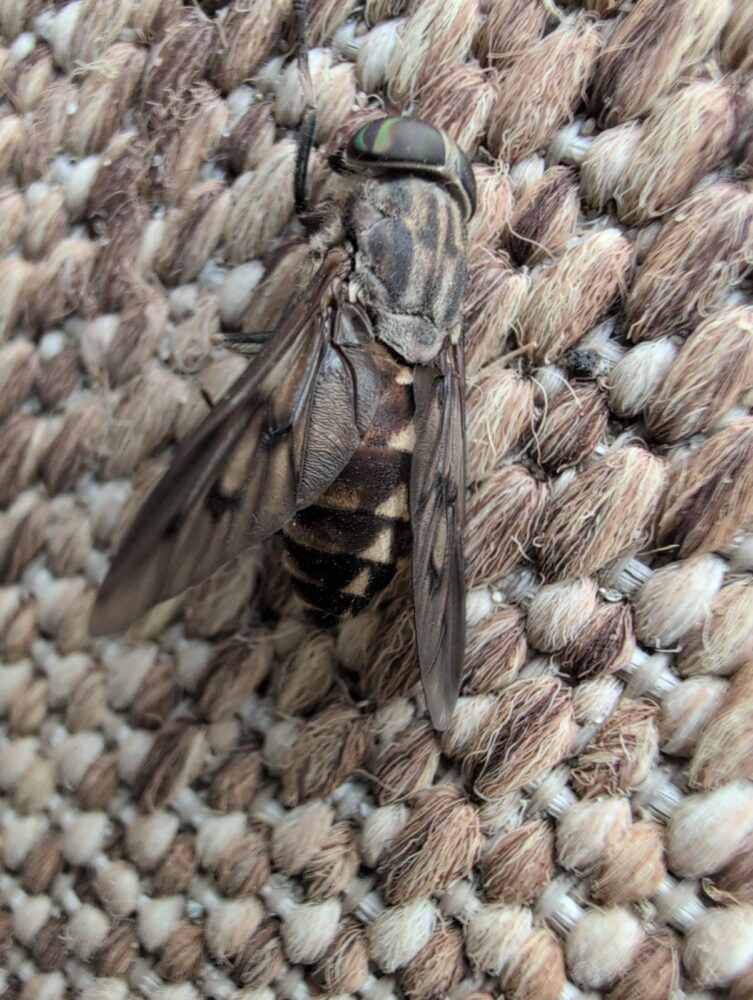Winning the War Against Horse Flies: Tips for a Bite-Free Backyard
Horse flies: those pesky, biting insects that can turn a relaxing afternoon outdoors into a swatting frenzy. While a few stray horse flies might seem like a minor nuisance, their painful bites and potential to transmit diseases make them a serious concern for homeowners. But don’t surrender your backyard to these winged warriors just yet! With a strategic approach, you can significantly reduce horse fly populations and reclaim your outdoor oasis.

Understanding the Enemy: Why Horse Flies are Attracted to Your Yard
Before we dive into control methods, it’s important to understand what attracts horse flies in the first place. These pests thrive in environments with:
- Moisture: They breed in wet areas like marshes, ponds, and poorly drained soil.
- Sunlight: They are attracted to sunny areas and are most active during the day.
- Movement: Horse flies are drawn to movement and dark colors, making humans and animals prime targets.
- Carbon Dioxide: They use carbon dioxide exhaled by animals to locate their next meal.
Taking Charge: Effective Horse Fly Control Strategies
1. Habitat Modification:
Eliminating breeding grounds is the first step in reducing horse fly populations. Here’s how:
- Eliminate Standing Water: Remove any sources of standing water, such as buckets, clogged gutters, and birdbaths. If you have a pond or water feature, consider adding a fountain or aerator to keep the water moving.
- Improve Drainage: Ensure proper drainage in your yard to prevent soggy areas where they can breed.
- Mow Regularly: Keep your grass trimmed short to reduce shaded areas where horse flies like to rest.
2. Trapping:
Trapping can be an effective way to capture and eliminate adult horse flies. Several types of traps are available, including:
- Sticky Traps: These traps use a sticky substance to capture those that land on them.
- Box Traps: These traps lure horse flies into a container with an attractant, such as a dark-colored object or a scent lure.
- Manure Pit Traps: Since they breed in manure, placing traps near manure piles can be effective in capturing adults.
3. Repellents:
While repellents offer temporary protection, they can be helpful for individuals spending time outdoors.
- DEET-based repellents: These are generally effective against horse flies, but be sure to follow label instructions carefully.
- Natural repellents: Some essential oils, like citronella and eucalyptus, may offer some repellent properties.
4. Protective Clothing:
Wearing light-colored, loose-fitting clothing can help reduce your attractiveness to horse flies. Consider wearing long sleeves, pants, and a hat when spending time outdoors.
5. Professional Pest Control:
For severe infestations or ongoing horse fly problems, it’s best to call in the professionals. Home Run Pest & Termite Control offers effective horse fly control solutions tailored to your specific needs.
Why Choose Home Run Pest & Termite Control:
- Expert Identification: We accurately identify the species and breeding sites to develop a targeted treatment plan.
- Integrated Pest Management: We utilize a combination of methods, including habitat modification, trapping, and targeted insecticide applications, to minimize environmental impact.
- Experienced Technicians: Our trained technicians have the knowledge and expertise to effectively control horse fly populations.
- Customer Satisfaction: We’re committed to providing exceptional service and ensuring your peace of mind.
Reclaim Your Backyard Oasis
Don’t let horse flies ruin your outdoor enjoyment. By implementing these control strategies and partnering with Home Run Pest & Termite Control, you can reclaim your backyard and enjoy a bite-free summer. Contact us today for a free consultation and let us help you win the war against horse flies!
